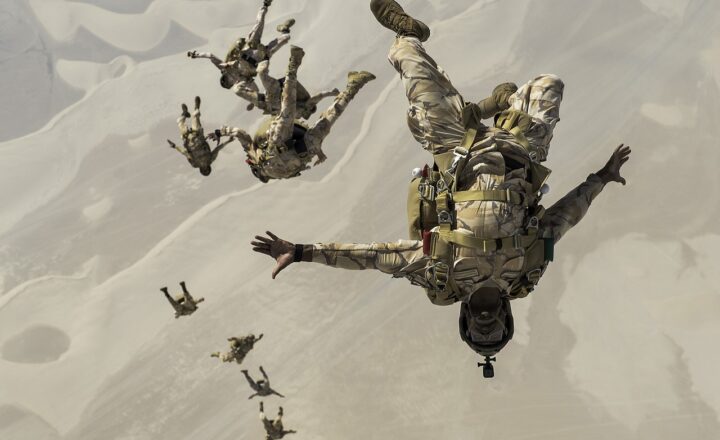The CIA’s Role in Secret Assassinations: Allegations and Theories
November 15, 2024

The Central Intelligence Agency (CIA) has long been shrouded in controversy, especially concerning allegations of its involvement in covert operations and secret assassinations.
From its inception during the Cold War, the CIA has undertaken numerous secret missions, often under the guise of national security. This article delves into the history, methods, and ethical implications surrounding the allegations against the agency regarding its role in clandestine killings.
1. The Historical Context of CIA Assassinations
The CIA was officially created in 1947 with the mission to gather intelligence and conduct covert operations for the United States government. During the Cold War, the agency became heavily involved in global power struggles, often resorting to assassination as a strategy to eliminate perceived threats.
Some of the earliest examples of CIA involvement in assassinations include the plots against foreign leaders seen as hostile to U.S. interests. Operations in countries such as Cuba, Iran, and the Dominican Republic reveal the agency’s willingness to employ extreme measures in its quest to maintain U.S. dominance. The infamous Operation 40 aimed at overthrowing Fidel Castro has become a hallmark of agencies’ nefarious operations during this period.
2. Allegations of Assassination Programs
Throughout the years, numerous allegations have surfaced suggesting the CIA was complicit in assassination plots, both foreign and domestic. One significant period of scrutiny was during the 1970s when several incidents prompted investigations into the agency’s actions.
Key allegations include:
- The Phoenix Program (1967-1972): A covert operation during the Vietnam War designed to infiltrate and eliminate the Viet Cong. Thousands of suspected Viet Cong members were imprisoned and reportedly killed in this program, raising ethical questions about state-sponsored killings.
- Operation CHAOS: Initiated to monitor, infiltrate, and potentially eliminate domestic dissenters during the 1960s and 1970s, this program raised severe concerns about civil liberties and the potential targeting of American citizens.
- Assassination of Patricio Aylwin: Some theorized that the CIA played a role in the disenfranchisement and eventual assassination of the Chilean opposition figure Aylwin, reinforced by the gruesome coup against Salvador Allende in 1973.
These programs and allegations sparked numerous debates over the legitimacy and morality of assassination as a tool for achieving foreign policy objectives.
3. The Ethical Implications of Assassinations
The question of ethics surrounding CIA assassinations is both complex and contentious. Critics argue that state-sponsored killing undermines the rule of law and international humanitarian principles. The revelations of conspiracy theories related to the CIA drew significant public outrage and prompted calls for accountability and reform within the agency.
Some key ethical concerns include:
- Extrajudicial Killings: Many assassinations were carried out without due process, raising concerns about governmental overreach and misuse of power. Critics emphasize that such actions violate both human rights and constitutional protections.
- Collateral Damage: Covert operations often resulted in unintended casualties among innocent civilians, leading to significant backlash and long-term repercussions in affected regions.
- Perpetuating Violence: Assassinations, rather than providing stability, often exacerbated conflict in the regions targeted, fostering an environment of retaliation and further violence.
These concerns raise important questions about the justifications for using assassination as an instrument of U.S. foreign policy.
4. Theories Surrounding Notable Figures
Numerous notable individuals have been at the center of assassination theories, elevating the interest in the CIA’s covert activities. Some infamous figures include:
- Fidel Castro: The CIA reportedly plotted numerous assassination attempts against the Cuban leader, utilizing everything from poisoned cigars to exploding seashells.
- Che Guevara: Following their roles in the Cuban Revolution, Guevara’s support of anti-imperialist movements led to theories involving the CIA in his eventual capture and execution in Bolivia in 1967.
- Robert F. Kennedy: Conspiracy theories abound regarding the involvement of various agencies, including the CIA, in the assassination of JFK’s brother, especially given his growing opposition to the Vietnam War and advocacy for civil rights.
These theories, whether fact or fiction, underline the distrust of governmental agencies and their potential violations of ethical norms throughout history.
5. Congressional Oversight and Reforms
In light of the allegations surrounding CIA operations, several measures have been implemented to ensure greater accountability and oversight of intelligence agencies. Following the Watergate scandal and subsequent revelations about the Phoenix Program, Congress initiated several investigations, leading to significant reforms aimed at guiding the agency’s covert operations.
The Church Committee (1975) and the Pike Committee focused on the CIA’s past deeds and ultimately recommended oversight to a degree previously unseen.
Key reforms included:
- Oversight Hearings: Congress established mechanisms for oversight of clandestine operations, aiming to prevent future abuses of power.
- Executive Orders: The U.S. government set forth Executive Orders prohibiting assassination as a policy, emphasizing the resolution to move away from such extreme tactics.
- Increased Transparency: Intelligence agencies were compelled to operate with greater transparency, allowing for public scrutiny and potential avenues for accountability.
Reforms not only sought to curtail the use of assassination but also to rebuild trust among the public in covert operations conducted by the agency.
6. The Future of Covert Operations
As global politics continue to evolve, the debate surrounding the use of assassination and covert operations remains relevant. Current conflicts, digital warfare, and advancements in AI-tech vastly alter the landscape of espionage and assassination.
The potential for remote assassinations, drones, and robotic technologies poses significant ethical dilemmas going forward. International responses, humanitarian laws, and oversight protocols will need to adapt to these emerging realities, ensuring an ethical approach to national security is maintained.
Conclusion
The CIA’s alleged involvement in secret assassinations has sparked a vigorous debate, not just about the agency itself but about the moral implications of using such drastic measures in pursuit of U.S. interests.
While accountability measures have been instituted, it remains crucial for international and domestic discourse to continue examining the ramifications of these actions. Only by holding intelligence agencies accountable and insisting on ethical standards can a foundation for a more transparent future exist. As history suggests, the lessons learned from past operations must inform the policy decisions of tomorrow to promote a world grounded in justice and accountability.








